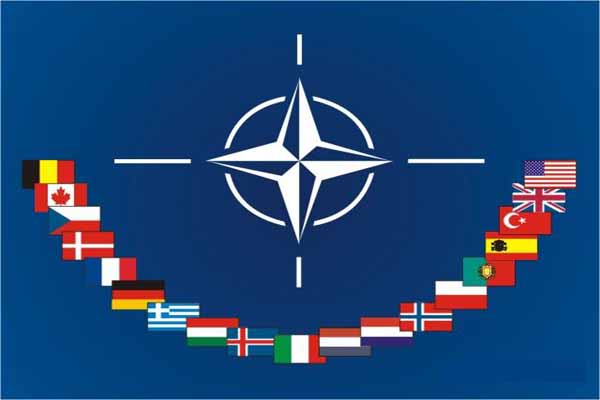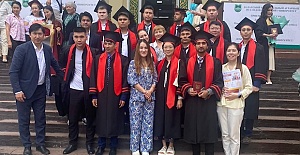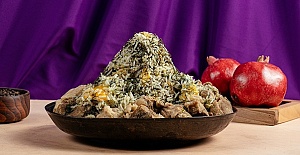To applause from Arab heads of state, a foe of Bashar al-Assad took Syria's vacant seat at an Arab summit on Tuesday, deepening the Syrian president's diplomatic isolation and diverting attention from opposition rifts. Speaking at an annual gathering of Arab heads of state in the Gulf state of Qatar, Moaz Alkhatib said he had asked U.S. Secretary of State John Kerry for U.S. forces to help defend rebel-controlled northern parts of Syria with Patriot surface-to-air missiles. NATO swiftly rebuffed the idea.
"It was a historic meeting. You could feel the grandiose nature of the meeting," said opposition spokesman Yaser Tabbara.
"It's a first step towards acquiring full legal legitimacy."
Alkhatib said the United States should play a bigger role in helping end the two-year-old conflict in Syria, blaming Assad's government for what he called its refusal to solve the crisis.
"We are still waiting for a decision from NATO to protect people's lives, not to fight but to protect lives," he said.
Responding to Alkhatib's remarks, an official of the Western military alliance at its headquarters in Brussels said: "NATO has no intention to intervene militarily in Syria.
"NATO calls for an end to violence in Syria, which represents a serious threat to stability and security in the region. We fully support the efforts of the international community to find a peaceful solution," the official said.
Michael Stephens, a researcher based in Qatar for Britain's Royal United Services Institute, said acceding to Alkhatib's request would effectively put NATO at war with Damascus.
NATO's current deployment of three Patriot missile batteries, in eastern Turkey, is intended to be purely defensive, shielding Turkey from possible attack from Syria. The Patriots are designed to shoot down hostile missiles in mid-air.
Alkhatib took Syria's chair at the summit for the first time despite announcing on Sunday that he would step down as leader of the Syrian National Coalition.
The Arab League suspended Syria in November 2011 in protest at its use of violence against civilians to quell dissent.
Syrian rebels again fired mortar rounds into central Damascus on Tuesday. State television said several people had been wounded by "terrorist" mortar bombs that landed in the Syrian Arab News Agency SANA compound in the Baramkeh district.
The attack followed a similar flurry of rebel mortar bombs that struck near the Opera House on Ummayad Square in the heart of Damascus, killing two people on Monday.
Syrian state TV did not cover the Arab League meeting in Qatar, airing a programme on makeup for women instead.
Jane Kinninmont, of Britain's Chatham House think tank, said Qatar and the other Gulf states had been frustrated that the United States in particular and also European powers had not done more to help the Syrian opposition.
"The Gulf countries contrast this to the Iraq war which many of them were quite dubious about, and they see a U.S. that's far less interventionist today, even though there's a much greater case for and immediate humanitarian need than there was in the case of Iraq."



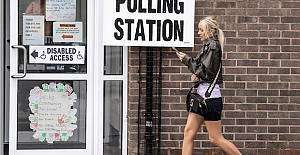 Advice for Enfield residents ahead of the General Election
Advice for Enfield residents ahead of the General Election Sunak promises tax cuts, economic stability, Conservative Party election manifesto
Sunak promises tax cuts, economic stability, Conservative Party election manifesto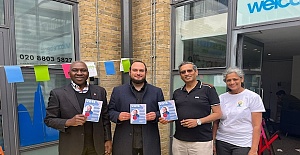 Ertan Karpazli, an independent MP candidate for the Enfield North constituency
Ertan Karpazli, an independent MP candidate for the Enfield North constituency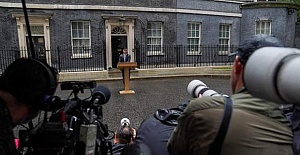 Rishi Sunak announces a general election in a statement outside Downing Street
Rishi Sunak announces a general election in a statement outside Downing Street Residents of Spanish island of Mallorca launch initiative to thank tourists amid protests over mass tourism
Residents of Spanish island of Mallorca launch initiative to thank tourists amid protests over mass tourism Srebrenica Remembered, Lessons for Justice and Peace! YEE London held a reflective event
Srebrenica Remembered, Lessons for Justice and Peace! YEE London held a reflective event British Premier Keir Starmer to reset UK-EU relations with high-profile meetings
British Premier Keir Starmer to reset UK-EU relations with high-profile meetings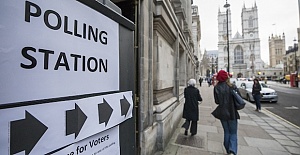 Voters head to polls for UK general election
Voters head to polls for UK general election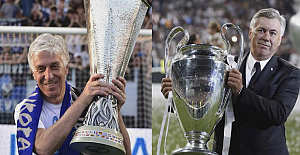 The Swiss official will take charge of the match between Real Madrid and Atalanta in Warsaw
The Swiss official will take charge of the match between Real Madrid and Atalanta in Warsaw Applications are now open for Walking and Cycling Grants London until 9 September 2024
Applications are now open for Walking and Cycling Grants London until 9 September 2024  Two Circles also appointed as exclusive media sales agency for UEFA Women’s Champions League
Two Circles also appointed as exclusive media sales agency for UEFA Women’s Champions League  England manager Gareth Southgate has resigned two days after defeat by Spain
England manager Gareth Southgate has resigned two days after defeat by Spain Joyce and Snell's planning application gets stamp of approval
Joyce and Snell's planning application gets stamp of approval The amount of bounce back loans fully repaid is just %13
The amount of bounce back loans fully repaid is just %13 Petrol prices higher than they should be, says RAC
Petrol prices higher than they should be, says RAC UEFA and Mastercard renew UEFA Champions League partnership
UEFA and Mastercard renew UEFA Champions League partnership




